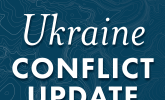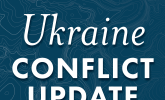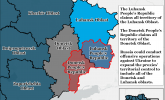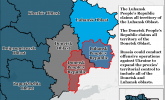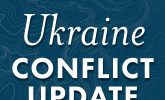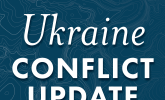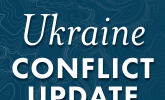Russia-Ukraine Warning Update: Initial Russian Offensive Campaign Assessment
February 24, 2022 - ISW Press
Russian President Vladimir Putin began a large-scale invasion of Ukraine on February 24 likely aimed at full regime change and the occupation of Ukraine. His claimed objective to “demilitarize” and “de-nazify” Ukraine is a transparent cover for an unprovoked war of aggression to occupy a neighboring state. Putin and Kremlin media continue to deny that the Russian invasion is a war, instead describing it as a special military operation. Putin’s messaging is likely aimed at a domestic Russian audience, which the Kremlin has not fully prepared for the costs of a war against Ukraine. Russian officials and state media have been denying and mocking Western warnings of the impending Russian invasion for months and as recently as February 23. Russian forces remain much larger and more capable than Ukraine’s conventional military. Russia will likely defeat Ukrainian regular military forces and secure their territorial objectives at some point in the coming days or weeks if Putin is determined to do so and willing to pay the cost in blood and treasure.


